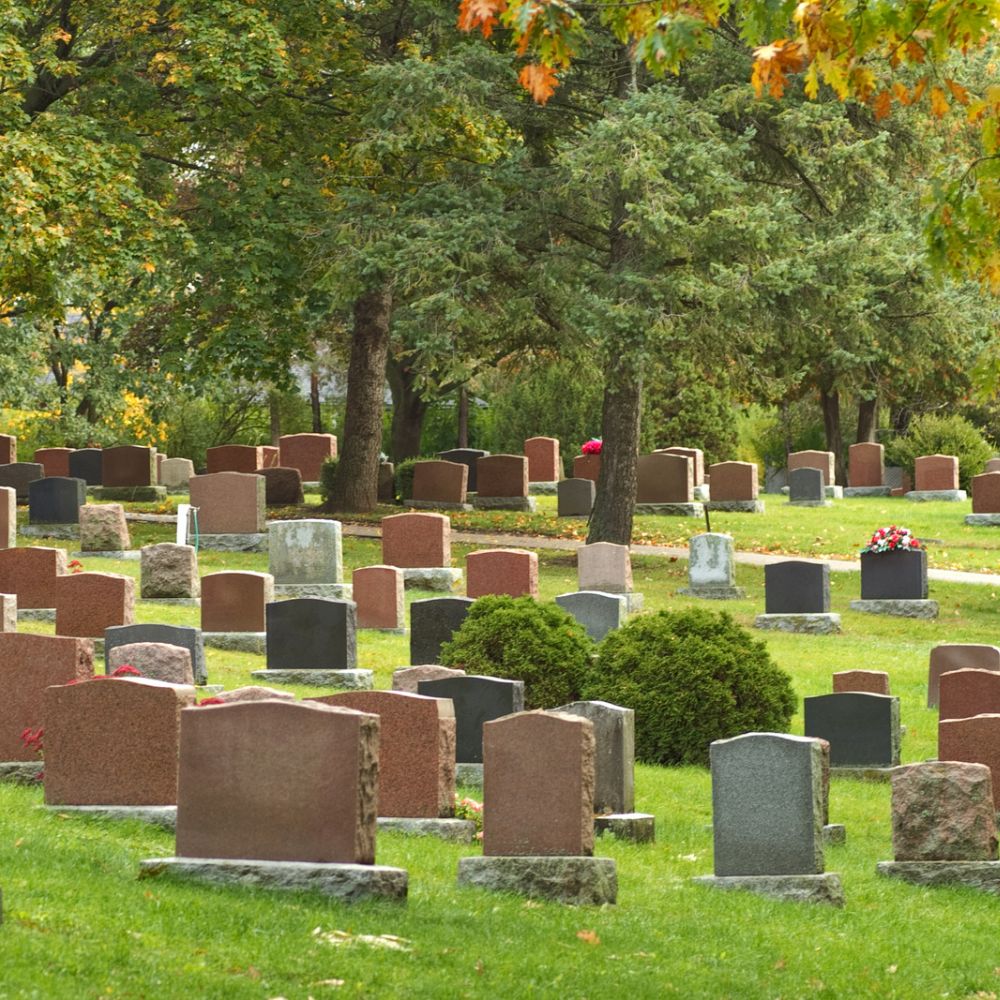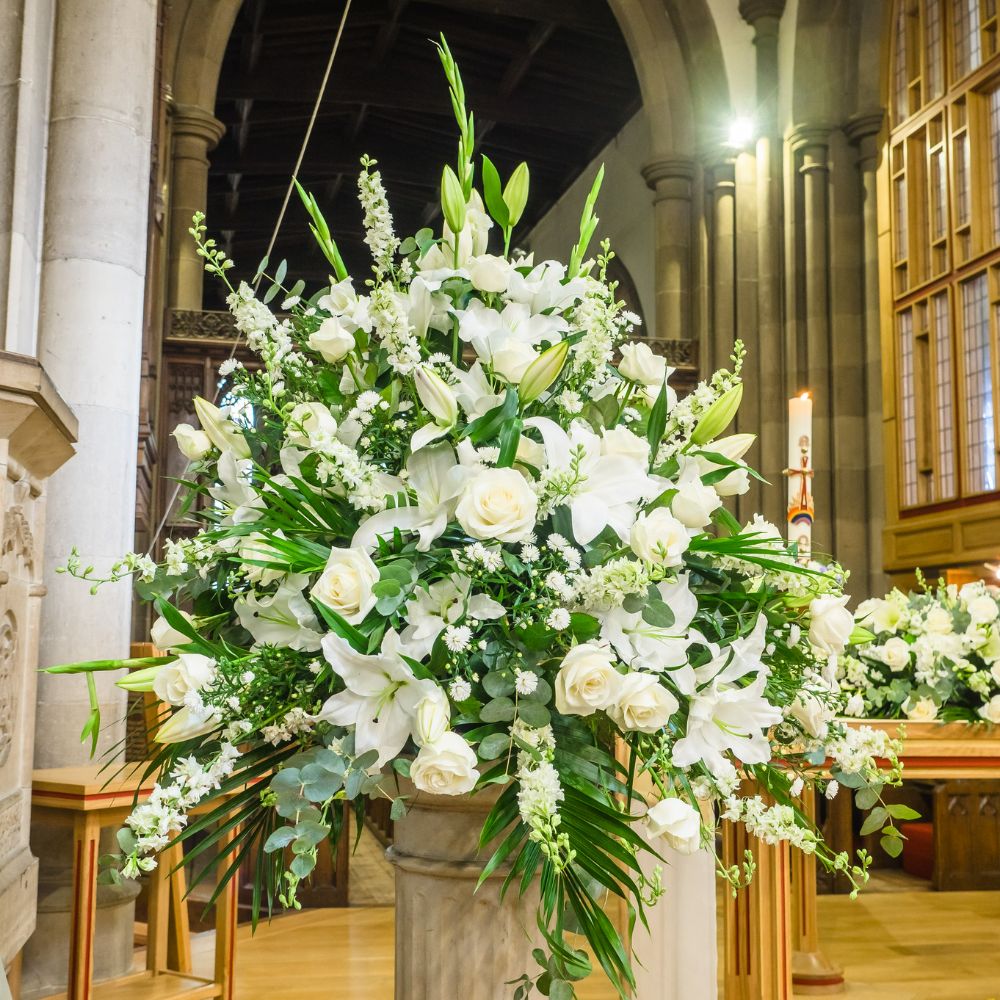All Articles & Guides / Funerals & Celebration of Life / Funeral Traditions and Customs
Funeral Traditions and Customs
Throughout history, different cultures have participated in some of the strangest funeral traditions and luckily, most have been replaced with more modern-day funeral practices. Culture, religion, and personal preferences all combine to create unique goodbyes for loved ones. Looking at the five major religions of the world and understanding their funeral traditions is an important part of learning how to honor the deceased in different cultures.
Here are the five major religions and how they shape funerals.
- Islam
- Hinduism
- Buddhism
- Judaism
- Christianity
Muslim Funeral Customs
Muslims follow Islamic teachings and believe death is not the end, but merely a transition to the next life. Faithful Muslims believe that living a good life on earth and following the teachings of the Qur’an, the holy book of Islam, are the requirements for entering Paradise. One important Muslim funeral custom is that the burial takes place as quickly as possible after death so there is no viewing or wake. Open caskets are rare, and the body is transported to a mosque immediately.
In respect to Muslim funeral customs, the body of the deceased is positioned to face Mecca, Islam’s holy city. An Imam, or Muslim religious leader, leads prayers and presides over the funeral, and although all are welcome at the service, in some communities only men attend the burial. Cremation is forbidden because according to the Islamic faith, a physical resurrection following the final judgment will take place.
Following the funeral service, guests may congregate at the home of the grieving family to share a meal and offer condolences and support. The mourning period is 40 days and flowers and food are appreciated condolence gifts.
Hindu Funeral Customs
Hindus believe that although the physical body dies, the soul is eternal, having no beginning and no end. One’s actions in life determine one’s karma and whether the soul passes to another incarnation or becomes one with Brahman. A Hindu funeral typically has three parts – a wake or funeral in the family home, a cremation ceremony (mukhagni), and a funeral ceremony (shraddha).
The body of a Hindu remains at home in an open casket until it is cremated since a wake or funeral takes place within one day of death. A funeral service is held in the home, and guests dress informally, with white attire preferred. (Black clothing is considered inappropriate for a Hindu funeral.) Flowers are an appropriate sympathy gift at a Hindu funeral, but they must be sent ahead of time. Bringing food is not customary, and cameras and recording devices are not allowed. Cremation typically takes place within 24 hours after death.
The shraddha takes place ten days after the body is cremated. The purpose of this ritual is to release the soul for its ascent into heaven. It is customary for guests to bring fruit to this service.

Buddhist Funeral Customs
Within Buddhism there are many sects, each with its own beliefs and practices. All Buddhists, however, share a common view of life and death. Buddhists believe that every soul is born and reborn into the world until the soul has been purified and achieves Nirvana, or a state of bliss.
To commemorate the deceased, Buddhist funeral customs have family and friends gather at the family home, a funeral home, or a Buddhist temple. There will typically be an officiant, such as a monk, or sometimes a minister if there is a blend with Christian faith. Guided by their belief in the afterlife, Buddhists lean towards cremation as part of the ceremony that releases the soul from the physical form.
Mourners typically wear a swatch of white clothing, such as a headband or armband, chant prayers, and bear offerings of flowers and fruit. Family members may use walking sticks to symbolize their need for support during their time of grief. It is appropriate to send or bring flowers to a service as long as there are no red flowers.

Jewish Funeral Customs
Jewish funerals are typically held in a synagogue or funeral home the day after death. The body is placed in a simple wooden coffin, which typically remains closed. Men who attend the funeral wear a jacket and tie with a yarmulke covering their heads. (Most funeral homes and synagogues can provide a yarmulke for a guest.) Women dress conservatively in somber colors. A rabbi leads the service and prayers and delivers the eulogy. Cameras and recording devices are discouraged.
The Jewish mourning period, called Shiva, lasts seven days. During Shiva, the family receives guests at the home of the deceased, and twice a day they pray for the deceased.
Flowers are not an appropriate sympathy gift at a Jewish funeral; instead, consider making a donation to charity. Food is also an acceptable gift, but if you decide to bring food, be sure to ask in advance if the family keeps kosher and bring only kosher foods if they do.

Christian Funeral Customs
Christians make up the largest religious group in the world today at 31%. Those of the Christian faith believe that Jesus Christ is the Son of God and embrace his teachings as a model for living. Christians believe in eternal life; after physical death, one’s soul will spend eternity in heaven or hell based on faith in Jesus and/or one’s good or evil deeds during life on earth.
Christian funeral services may include any or all, of the following elements:
- Prayer
- Hymns
- Scripture readings
- Sermon by the priest or minister
- Eulogy or remembrance by a close friend or member of the family
- Graveside service
In general, you are free to participate, or you may witness the service in silence; your presence and support are what will matter to the family. Keep in mind, though, that individual Christian denominations (there are more than 1,500 Christian denominations in the U.S. alone!) may observe their own rules and rituals. Christianity has inspired Catholicism, Mormonism, and Lutheranism to name a few although they all share similar funeral traditions.
For more information and resources on funeral etiquette read through our articles on appropriate sympathy gifts, what to take to a funeral, or how to plan a scattering ashes ceremony. Saying goodbye to a loved one is never easy, but with good information at your disposal, we hope a difficult time can be a little easier.
Related Content





